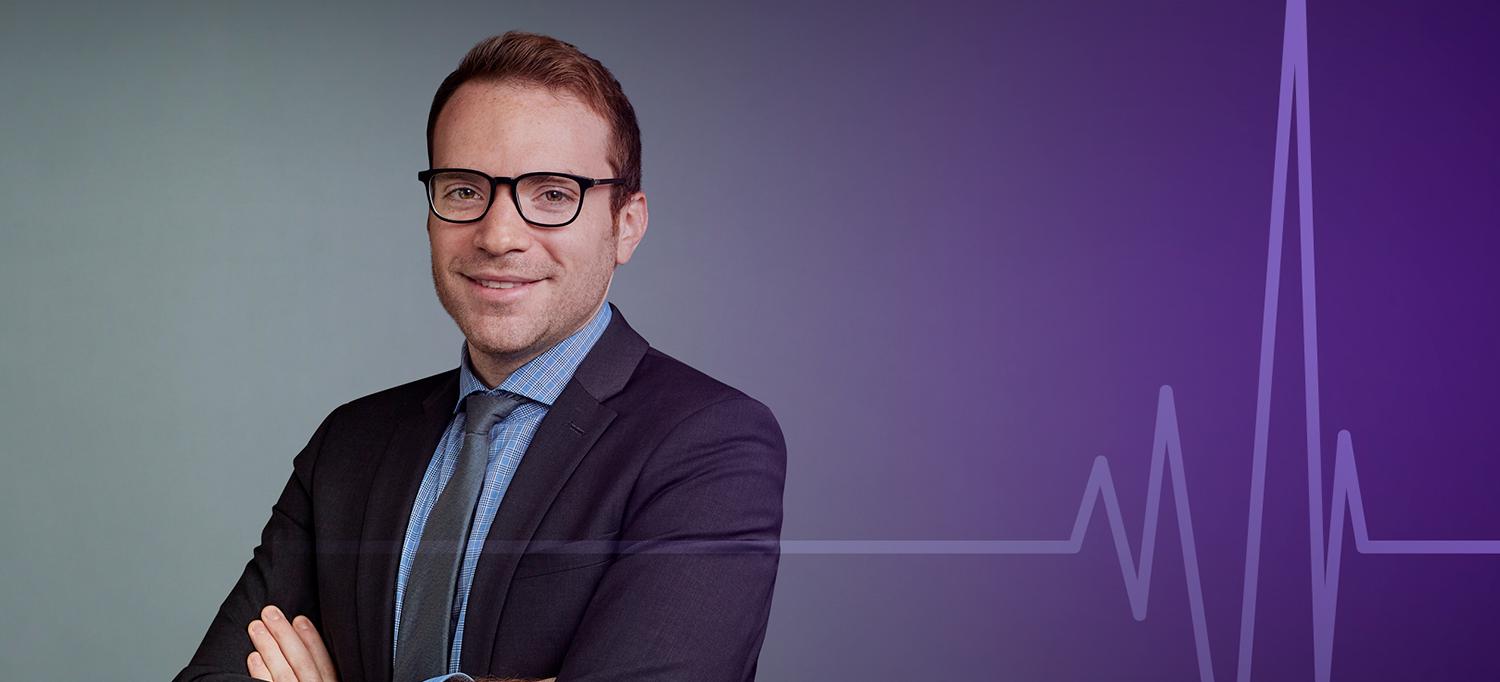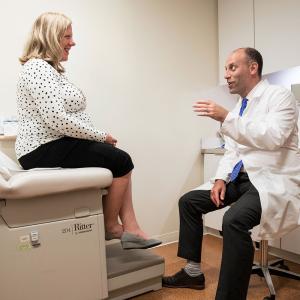
Jordan E. Axelrad, MD, MPH
Photo: NYU Langone Staff
As a gastroenterologist at NYU Langone’s Inflammatory Bowel Disease Center, Jordan E. Axelrad, MD, MPH, is well versed in treating people who have inflammatory bowel disease, also known as IBD. His knowledge of this chronic disease stems from more than just his medical training. Since the age of 19, Dr. Axelrad has been living with IBD—a group of disorders that cause inflammation of the digestive tract.
Dr. Axelrad’s personal experience with IBD has helped him connect better with his patients and understand their frustrations and challenges with managing this condition. “I wonder how much more I could have done if I had not had to waste so much time being sick,” says Dr. Axelrad, who recalls the physical and emotional toll the disease took during the initial years after being diagnosed.
As Dr. Axelrad discusses in this episode of the Vital Signs podcast, IBD is a complex and lifelong disease that can be difficult to treat because of its varying causes. The two main types of IBD are ulcerative colitis and Crohn’s disease. Each person may have different symptoms and may respond differently to treatment, requiring trial and error to find the right medication and treatment path.
Most people with IBD are relatively young when they’re diagnosed—symptoms tend to first appear when they are between 15 and 35 years old. One such patient of Dr. Axelrad is Julianne, who was diagnosed with ulcerative colitis after developing severe gastrointestinal symptoms as an otherwise healthy college student. “There’s no cure for it, and you’re going to have to be on medication your whole life. It’s a lot to wrap your head around,” says Julianne, whose search for a better plan to manage IBD led her to NYU Langone’s Inflammatory Bowel Disease Center.
After looking up Dr. Axelrad’s profile, Julianne knew she had found a doctor who may be the right fit for her. “I thought this was a great opportunity to work with someone who could truly understand what I was going through.” Together, Dr. Axelrad and Julianne worked out a plan that included trying out newer and promising treatments. Gradually, Julianne found her symptoms became less intense and less frequent, and she started to feel more energetic. She has now set her sights on training for her first triathlon in the four years since her diagnosis.
“IBD is something I’ve lived with every day for many, many years. I want that to be a comfort to people who are really struggling with this condition,” says Dr. Axelrad.

